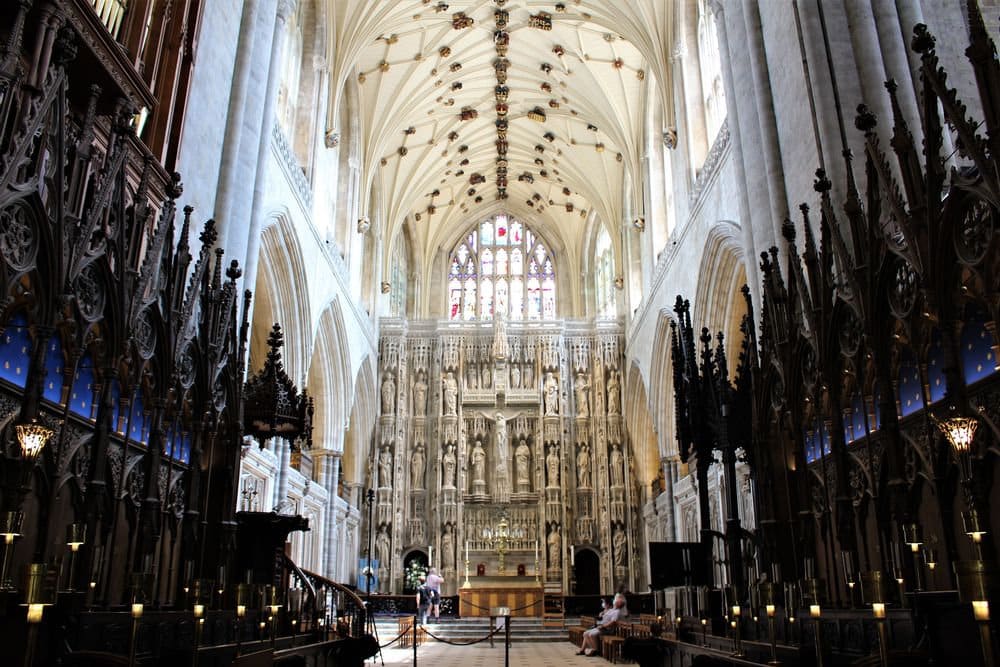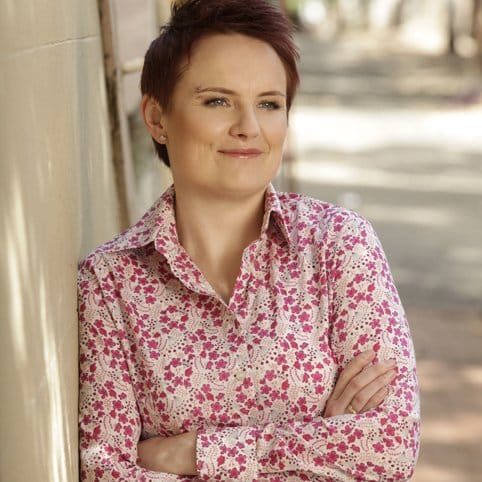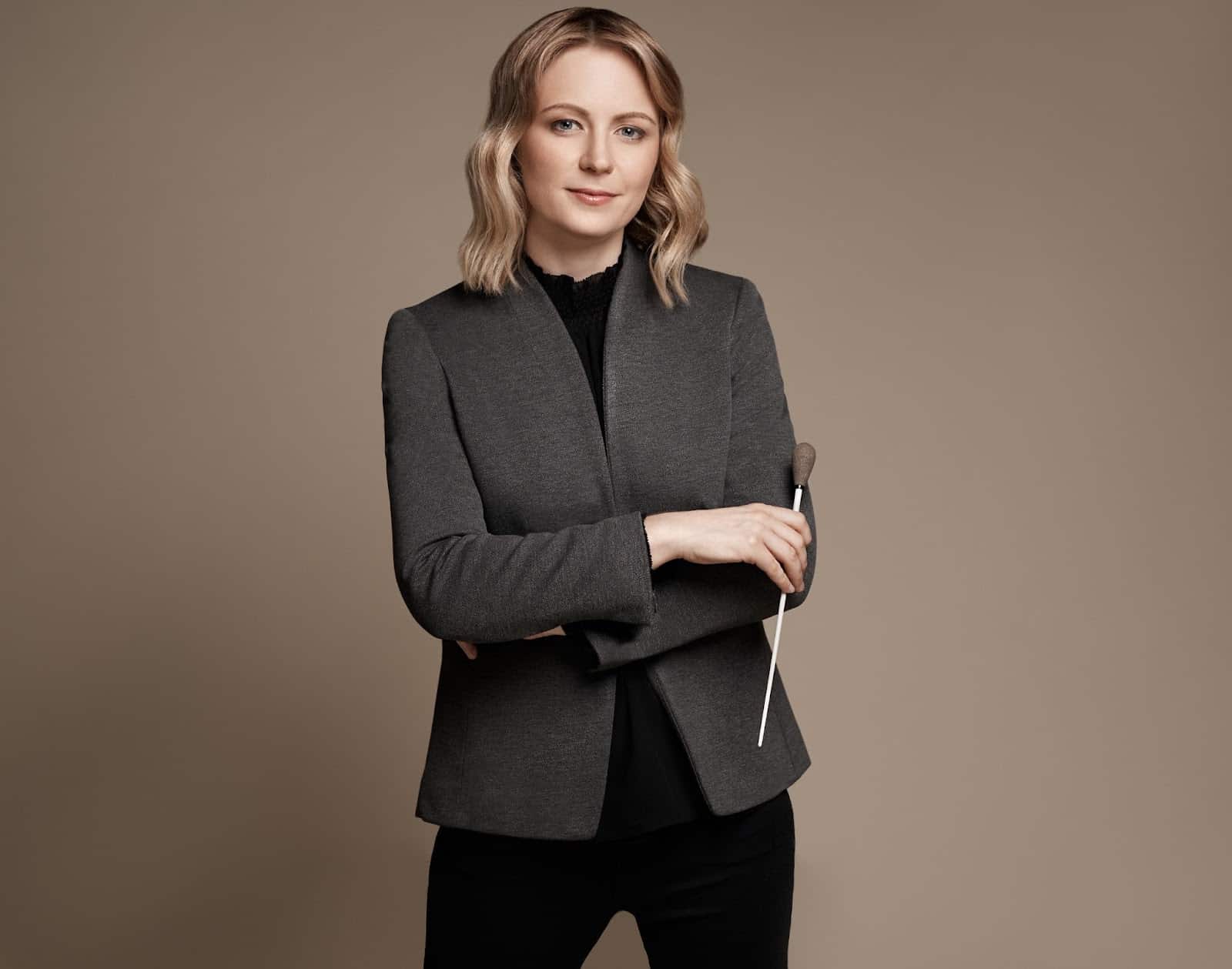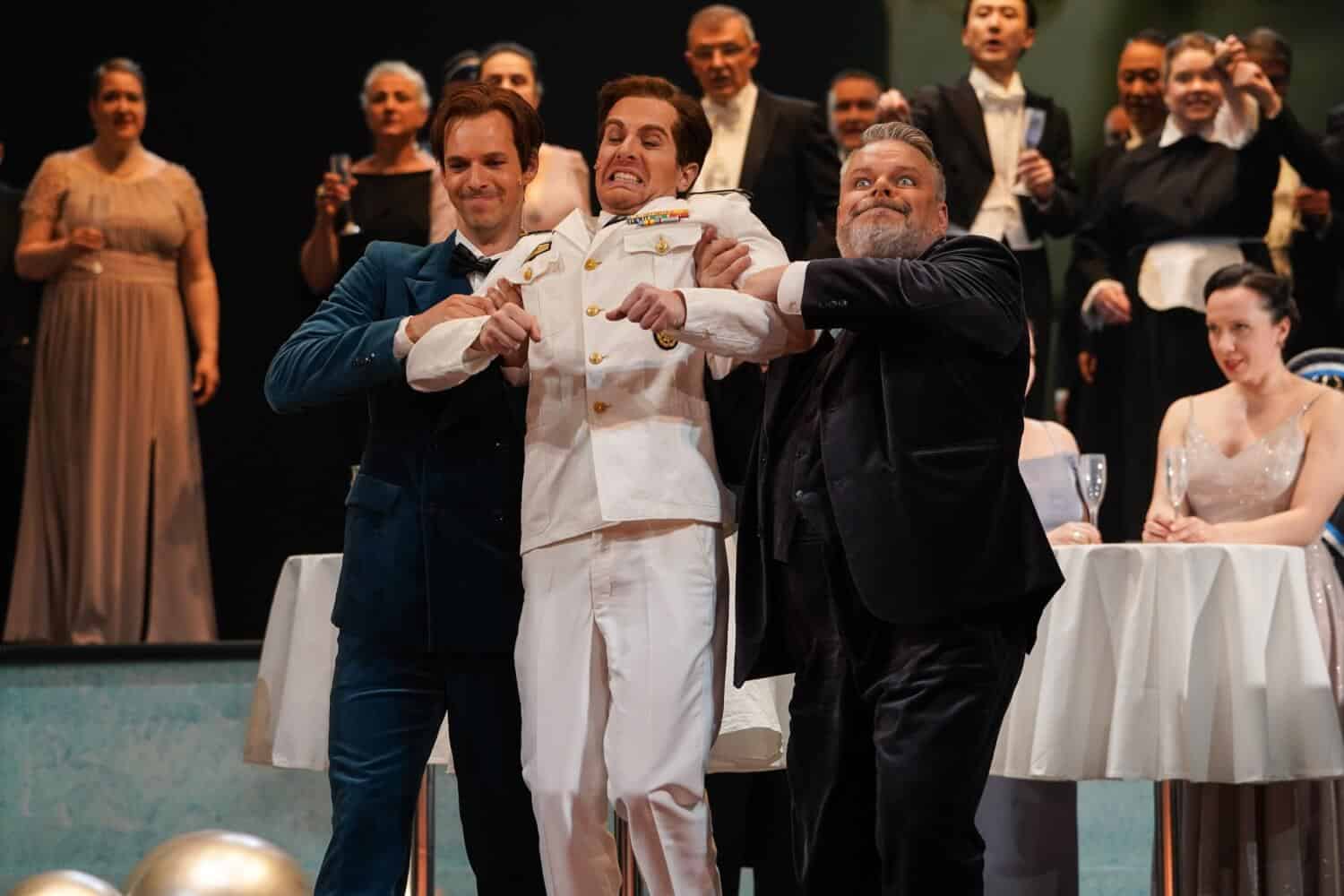Emerson Quartet loses cellist, hires English conductor (update)
mainDavid Finckel has decided to leave the Emersons, their first dropout in 34 years.

He is to be replaced by Paul Watkins, 42, winner of the 2002 Leeds Conducting Competition, music director of the English Chamber Orchestra and principal guest of the Ulster Orch.
How Paul will find time to play full-time cello in the quartet is a bit of a mystery, but then Finckel, 60, was always super-busy with his wife Wu Han and their co-label, ArtistLed, as well as his Music@Menlo California festival.
When we downed a glass of wine some weeks ago, he seemed positively bursting with plans.
As for the Emersons, they are just one record into a new contract with Sony.
UPDATE: Here’s an incredibly long press release, just landed:
|
EMERSON STRING QUARTET ANNOUNCES DEPARTURE OF CELLIST DAVID FINCKEL
Paul Watkins To Replace Mr. Finckel At The End Of The 2012-13 Concert Season
For Immediate Release – The Emerson Quartet announced what will be its first member change in 34 years when cellist Paul Watkins replaces David Finckel at the end of the 2012-2013 concert season. Mr. Finckel, who joined the Emerson Quartet in 1979, will leave the group to devote more time to his personal artistic endeavors.
Eugene Drucker, Philip Setzer and Lawrence Dutton jointly stated: “For more than thirty years we have worked intensively with David Finckel, sharing countless personal and musical experiences. Our collegial feelings toward this marvelous cellist are mingled with awe and admiration for his manifold talents as a chamber music player, soloist and artistic director of two major presenting organizations and a recording company. Anyone who comes into contact with David must be struck by his unflagging energy, insatiable appetite for work and astonishing ability to manage his time (without which his three parallel careers would be impossible). His passionate, uncompromising commitment to our art could serve as a beacon to those who have lost their way in these economically and culturally disorienting times.
The impending departure of such an extraordinary colleague has given us a chance to reassess our goals and articulate a new vision for the future of the Emerson String Quartet.
It is only fitting that David’s successor be a multi-talented musician, an accomplished conductor as well as an outstanding soloist and experienced chamber music player. In Paul Watkins, we three upper string players of the ESQ will continue to find a source of inspiration. Since Paul is almost two decades younger than the rest of us, we see his coming both as an opportunity to reaffirm and renew our commitment to the musical values we have long held dear, and as a chance to ensure the continuation of the Emerson String Quartet beyond the participation of any individual member.”
The Emerson String Quartet has an unparalleled list of achievements: nine Grammy® Awards (including two for Best Classical Album, an unprecedented honor for a chamber music group), three Gramophone Awards, the coveted Avery Fisher Prize and an international reputation for groundbreaking chamber music projects and correlated recordings. In addition to a career which has been unrivaled by any string quartet, Philip Setzer, Eugene Drucker, Lawrence Dutton and David Finckel are respected for their integrity, the tireless effort with which they reach out to others on behalf of the music they serve, and a unique generosity of spirit and enthusiasm which has remained untarnished for thirty-three years.
David Finckel has noted: “During the past year, after much soul-searching, I came to the realization that it would be sensible to make the 2012-13 season my last in the Emerson Quartet. My colleagues of 33 years have been extremely understanding of my desire to pursue, with greater energy, my increasing number of performing, educational and presenting commitments that are independent of the quartet. My heart is warmed by the knowledge that Paul Watkins’ enormous gifts as a cellist and musician will fuel the Emerson’s onward journey with vibrant energy and fresh perspectives. I could not be happier to see him take my chair, nor can I wait to hear how marvelous the quartet will sound in its new incarnation. While I will forever treasure the rich network of friendships and experiences I have enjoyed as a member of the Emerson Quartet, I am equally excited for the opportunities which await me in the next chapter of my artistic and professional life.”
Paul Watkins remarked: “Over the last two decades of my life, I have been fortunate to have made music as an orchestral principal, soloist, recitalist and conductor. However, I have frequently returned to the touchstone of chamber music – particularly the string quartet – to inspire and replenish my musical soul. I am filled with joy and anticipation at the prospect of exploring this unparalleled repertoire with the members of this legendary quartet. I am also acutely conscious of the enormous contribution David Finckel has made, not only to the Emerson Quartet, but as an artistic leader of uncommon energy and vision. I will make every effort to honor his extraordinary legacy. I have always thrived on a varied musical diet. I fully intend to continue pursuing my activities as a conductor, soloist and recording artist in harmony with my new role as cellist of the Emerson Quartet.”
|
|
Paul Watkins enjoys a distinguished career as solo cellist, conductor and chamber musician. As concerto soloist he has performed regularly with all the major British orchestras and made six appearances at the BBC Proms, most recently in a televised performance of the Elgar Cello Concerto at the First Night of the Proms with the BBC Symphony Orchestra conducted by Ji?í B?lohlávek and recorded live by Deutsche Grammophon. Recent highlights have included his debut at Carnegie Hall performing Brahms’ Double Concerto with Daniel Hope, and concerto appearances with the Hong Kong Philharmonic and Philharmonia Orchestras. In 2012/13 he will premiere a new concerto written for him by Mark-Anthony Turnage with the Royal Liverpool Philharmonic, Tampere Philharmonic, Royal Flemish Philharmonic and Gewandhausorchester Leipzig.
Winner of the 2002 Leeds Conducting Competition, Paul Watkins became the first ever Music Director of the English Chamber Orchestra in 2009 and is also Principal Guest Conductor of the Ulster Orchestra, with whom he made his BBC Proms conducting debut in 2010. He has conducted all the principal British orchestras including the London Symphony, London Philharmonic, City of Birmingham Symphony and Philharmonia Orchestras, and worked with many prestigious orchestras worldwide including the Vienna Chamber Orchestra, Ensemble Orchestral de Paris, Netherlands Radio Chamber Philharmonic, Tokyo Metropolitan Symphony, Melbourne Symphony and the Prague Symphony at the Prague Spring Festival. In coming seasons he debuts with the Indianapolis Symphony and Swedish Chamber Orchestras.
A dedicated chamber musician, Paul Watkins has been a member of the Nash Ensemble since 1997, and regularly collaborates with the world’s finest musicians, including Menahem Pressler, Jaime Laredo, Lars Vogt, Christian Tetzlaff and Leila Josefowicz. He has given recitals at the Amsterdam Concertgebouw, London’s Wigmore Hall and Southbank Centre, Manchester’s Bridgewater Hall, and Queens Hall, Edinburgh. Future highlights include a solo recital at Wigmore Hall, and performances at Music@Menlo and with the Chamber Music Society of Lincoln Center.
In 2009 Paul Watkins signed an exclusive contract with Chandos Records for a series of recital and concerto discs. Recent releases include Britten’s Cello Symphony, the Delius and Rosza cello concertos, and discs of Martinu’s and Mendelssohn’s music for cello and piano. Forthcoming releases will include the Elgar and Lutoslawski concertos, and a survey of British cello sonatas. His first recording as a conductor (Britten and Berg Violin Concertos with Daniel Hope for Warner Classics) won a Schallplattenpreis in Germany and was nominated for a Grammy Award.
Of the multiple highlights and extraordinary projects accredited to the Emerson Quartet, several milestone achievements stand out:
*In both 1981 and 1988, the Quartet attracted national attention with the presentation of the six Bartók quartets in a single evening, first at Lincoln Center and later for its Carnegie Hall debut. The Emerson’s recording of the cycle received the 1989 Grammy® Awards for “Best Classical Album” and “Best Chamber Music Performance” and Gramophone Magazine’s 1989 “Record of the Year Award” – the first time in the history of each award that a chamber music ensemble had ever received the top prize.
*In March 1997, the Quartet released a seven-disc set of the complete Beethoven quartets and presented a sold-out series of performances over two seasons at New York’s Lincoln Center entitled “Beethoven and the Twentieth Century.” The Beethoven recording earned a Grammy® Award for “Best Chamber Music Album.”
*In 2000, the Emerson performed the complete Shostakovich quartets at Lincoln Center in New York and in London, in a cycle divided between the Wigmore Hall and the Barbican. Each series culminated with The Noise of Time, a theatrical presentation directed by Simon McBurney featuring the Quartet and Complicité, Mr. McBurney’s theater company. Since 2001, The Noise of Time has been repeated in Los Angeles, Berlin, Vienna, Paris and Moscow. The five-disc set won the 2000 Grammy® Awards for “Best Classical Album” and “Best Chamber Music Performance,” as well as Gramophone Magazine’s “Best Chamber Music Performance” Award for 2000. In 2008, New York Magazine named The Noise of Time one of the most important contributions to the arts in New York since the inception of the magazine.
*In 2007 The Quartet celebrated 30 years of quartet activity and 20 years as exclusive Deutsche Grammophon recording artists with a historic nine-concert Perspectives series in Isaac Stern Auditorium at Carnegie Hall, titled Beethoven In Context. The series, which spanned three centuries of repertoire, received an overwhelming response and eight outstanding reviews in The New York Times.
*In 2011, The Quartet announced its exclusive agreement with Sony Classical. Since 2002, the Emerson has been Quartet-in-Residence at Stony Brook University. Prior to that time they were affiliated for twenty years with the Hartt School of Music. The Emerson has had a residency at The Smithsonian Institution in Washington, DC for 32 seasons. |





This PR firm is paid by the letter!
Astonishing group, but i expect scheduling rehearsal time should be pretty thorny: a resident of the Sceptered Isle and three denizens of the NYC area? Ah: SKYPE!